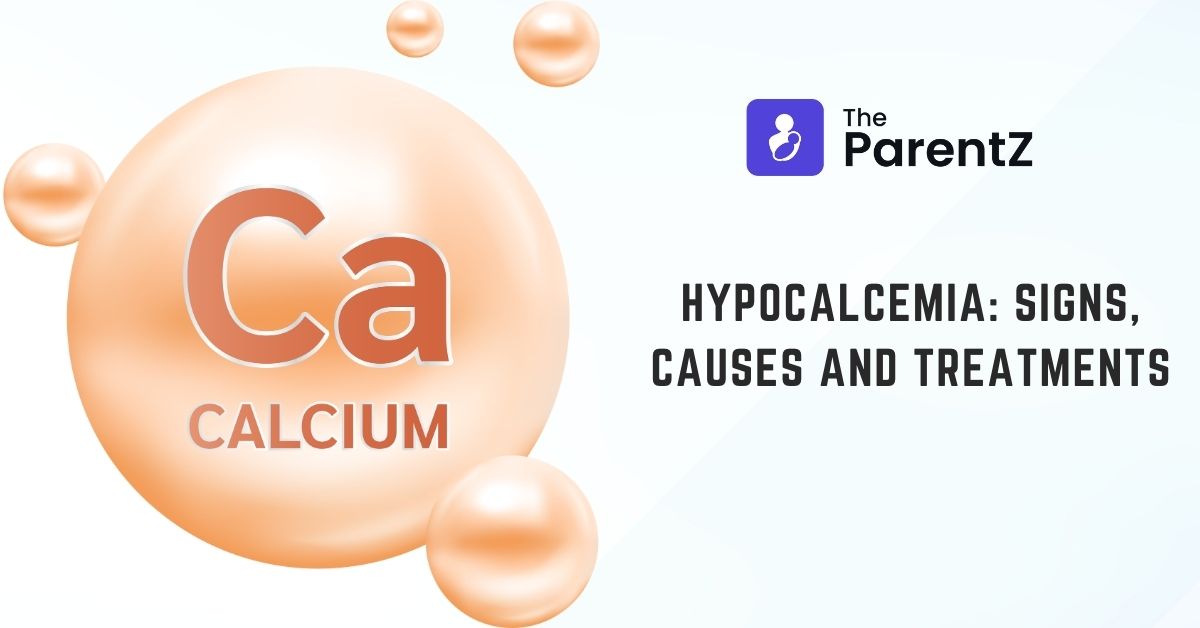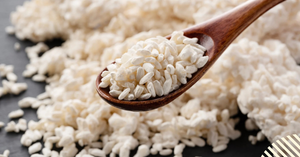What is hypocalcemia?
Hypocalcemia is a medical condition when the level of calcium present in the blood becomes lower than the required range. A child with hypocalcemia can have problems in the optimal functioning of various organs in the body and normal metabolism. Calcium is a type of mineral which is needed by the body for building healthy bones and teeth. Calcium is also responsible for proper working of the nerves, muscles, and the heart.
What are the signs and symptoms of hypocalcemia?
The signs and symptoms of hypocalcemia appear depending on the levels of calcium and how fast they have been depleted in the body. Calcium may be low constantly over a long time or levels may drop suddenly due to some reason. In babies with hypocalcemia, the following signs and symptoms may be seen:
- The child may become fussy
- The child can have vomiting
- Baby becomes weak and also appears floppy
- The child can have twitching or shaking of body
- The child may seem jittery
- The child does not feed well and can also refuse feeds
- The child might appear weak and sluggish
- Sometimes, seizures may be present
- Rickets may appear in a baby with calcium depletion over a long time
What causes hypocalcemia?
There can be multiple reasons for a low calcium level in the body of a child. The intake may be less, the excretion of calcium can be increased or the processing of calcium to active form may be defective. Some specific reasons for hypocalcemia in a child are-
- The diet of a child is low in calcium. A baby can face this problem if fed homemade formula or watered-down formula instead of breastmilk and its proper substitutes. A child younger than 1 year of age can also develop hypocalcemia if fed by a cow or goat milk.
- The baby can also develop hypocalcemia if the diet is low in vitamin D. Vitamin D is responsible for absorbing calcium in the body.
- Parathyroid hormones which are responsible for processing and controlling the amount of calcium in blood are not at proper levels.
Which babies are at risk for hypocalcemia?
Hypocalcemia may develop in newborns as well which is known as neonatal hypocalcemia. Some babies with specific conditions are more prone to its development. The risk factors are-
- Baby is born earlier than expected date
- Baby born is very small or has very low weight
- Baby had a difficult birth
- Baby was born to a mother suffering from diabetes.
What is the treatment of hypocalcemia?
The treatment required for a baby with hypocalcemia depends on the levels of calcium and whether or not the symptoms appear in a child.
If a baby shows severe symptoms, an IV will be used to deliver calcium in the body of the baby to bring it back to normal levels. The child is usually admitted in the hospital during this treatment and investigations are done to determine the underlying cause which should be treated.
Children with mild hypocalcemia may not show any symptoms. It might be an incidental finding in lab tests done normally. This mild hypocalcemia can resolve on its own with proper nutrition.
At times, calcium or vitamin D supplements can be given to your baby as a liquid which can be swallowed by the baby.
What should I know as a parent?
- Breast milk is the best source of calcium and other minerals for the baby.
- Store-bought infant formulas can be used if breastfeeding is not possible. It is specially formulated with adequate amounts of calcium and other minerals.
- Babies need external vitamin D supplements when fed on breastmilk.









Be the first one to comment on this story.